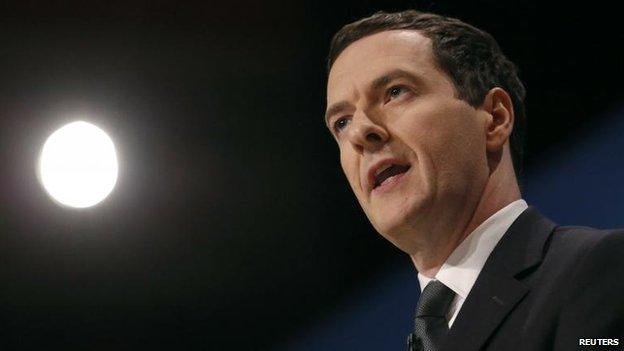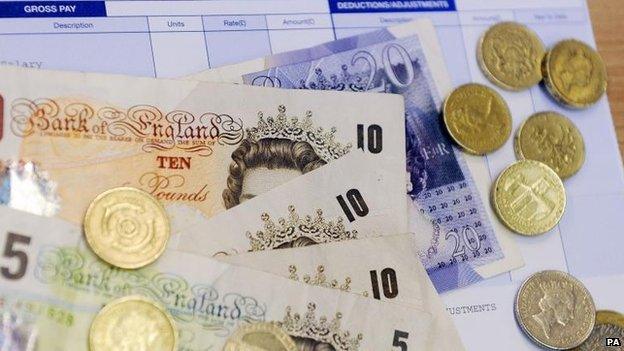A blacker fiscal hole?
- Published
- comments

The Treasury's statement on this morning's government borrowing figures for October - which are a bit less dire than those in the first six months of the year - is a classic of its kind.
On the one hand, the nameless official spokesperson makes the perhaps surprising claim that "public sector net borrowing still remains in line with the Budget forecast".
But just in case that turns out to be the triumph of pre-election hope over painful fiscal reality, the statement also adds that "we have to recognise that the UK is not immune to the problems being experienced in Europe and other parts of the world economy".
Which is as if to say: if the chancellor fails to reduce the deficit as promised this year, blame those flatlining Europeans please - not a Treasury failure to gauge the tax-paying capacity of the economy.
So what do the figures show?
Well last month public sector net borrowing actually fell (makes a nice change, you might say) compared with the same period last year, by £200m to £7.7bn.
But the Treasury would normally caution against looking at one month's figures. So what is the seven-month picture, compared with last year's?
Well as of the end of October 2014, net borrowing is £64.1bn, which compares with £60.5bn the government had borrowed by the same date in 2013.
So as of now, government net borrowing is 6.1% higher than last year, compared with the budget forecast - made by the Office for Budget Responsibility - that net borrowing would fall by 11.2% in the whole year.
To put it another way, if the government is to hit the target of borrowing £86.6bn in the full year, it must borrow no more than £22.5bn in the remaining five months.
In other words, it has to borrow at an average monthly rate of just £4.5bn from now till April, compared with the £9.1bn it has been borrowing on average so far this year.
Which is why some may be surprised by the Treasury's statement that borrowing is in line with the budget forecast.

So is it plausible that the borrowing rate will more than halve between now and the end of the year?
Well it is conceivable, I suppose, that the Autumn Statement in 10 days will announce a massive unprecedented short-term squeeze on departmental spending.
And, of course, a good deal of tax revenue is always back-ended - or paid late in the fiscal year.
In 2013-14 for example, there was £37bn of borrowing in the last five months of the year, compared with £60.5bn in the first seven months.
Even so, if that same monthly distribution of borrowing was replicated this year, with a big fall in borrowing in the coming months, the outcome for the year as a whole would still be a deficit of £103bn, which would be 5.6% higher than last year and 19% above the budget forecast.
Could a borrowing overshoot of that magnitude really be blamed on a stagnating eurozone?
Hmmm.
What has gone wrong?
Well the big story is that income tax revenues have not recovered as the economy has recovered.
Income tax receipts actually fell 0.4% to £81.5bn in the first seven months of the year.
Part of that fall is a direct result of government policy - in the sense that the increase in the tax-free personal allowance to £10,000 means many more people on low wages are not paying any tax at all.
Also, although the housing market boom has led to a 21.4% rise in stamp duty payments, the Treasury was actually expecting more from stamp duty.
There was however just a hint of a thaw in the long cold fiscal winter with a 4.2% rise in corporate tax receipts.
But, in spite of austerity, public spending was 2.3% up - due to a 2.7% rise in social benefits, supposedly mostly pension increases, and a 12.4% jump in capital spending.
Now it is possible that the widening deficit will suddenly narrow again in the coming weeks and months.
But a significant overshoot is more likely.
And that would be an explosive new element for the imminent general-election battle, because it implies any new government would have to immediately raise taxes or slash spending even more than current plans.